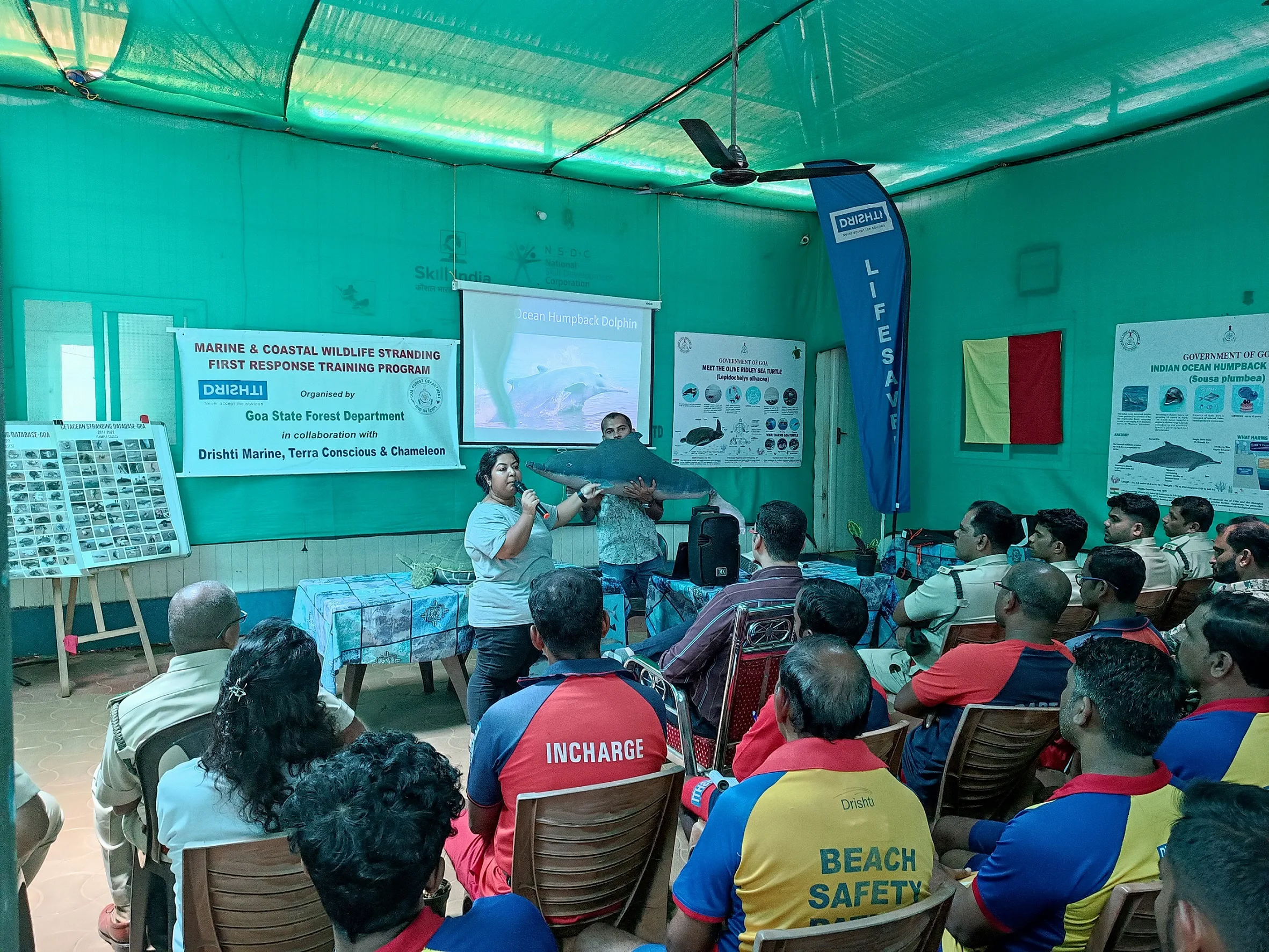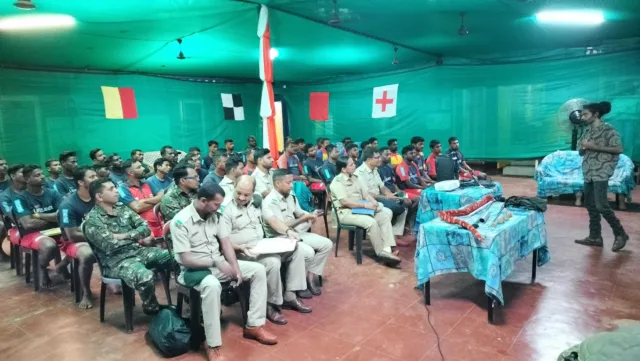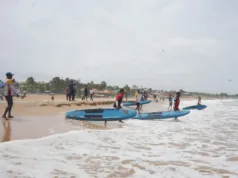Nearly 450 Drishti Marine lifesavers and around 50 forest department officials have undergone intensive training in handling a variety of marine strandings, including those involving dolphins, turtles, snakes and wild bird species on Goa’s beaches, including honing of their first reaction skills when faced with stranded species.
Lifesavers on beaches are the designated first-responders to any emergency involving humans as well as other species in distress along beach stretches.
The training programme kicked off in the presence of Deputy Conservator of Forests of North Goa, Anand Jadhav at Sinquerim beach and Deputy Conservator of Forests of South Goa, Aniket Gaonkar at Benaulim beach, conducted by resource persons from the NGOs Terra Conscious and Chameleon Wildlife Rescue Organisation with the objective of enhancing the skills and capacity of forest officials and lifesavers in managing strandings of wild species along the coastline and ensuring their swift and effective rescue. Reefwatch Marine Conservation, a specialist NGO, was also part of the training sessions during the week.
“Our capacity-building efforts are crucial in addressing the unique challenges of marine conservation. This initiative is our way of committing to improving our expertise in marine life management and conservation. We look forward to the new advances or new trends that are there in the conservation of marine species,” said Deputy Conservator of Forests Anand Jadhav, who represented the Forest Department which led the training programme initiative.
The initiative comes under the framework of the Annual Lifesaver Revalidation programme. The joint initiative aims to provide participants with the information and skills needed to handle various kinds of marine creatures that wash ashore, such as dolphins, turtles, snakes and birds.
“The reason why this training is necessary is because injured wild species have very specialised needs and there are specific protocols that are globally accepted that have to be followed in accordance with the Wildlife Protection Act of India. It is important that authorised responders, which in case of Goa, are lifesavers and forest guards, are trained in these first response protocols,” said Puja Mitra from Terra Conscious.

Drishti Marine’s extensive presence across the coastal belt in Goa positions the organisation as a key player in responding promptly to wild life strandings along beaches.
“We appreciate the ongoing assistance of the Forest Department and NGOs in Goa, as well as other relevant organisations. Our combined efforts are critical in ensuring that marine wildlife stranded on beaches receive the best possible care before being released back into their natural environment. This training ensures that our lifesavers are constantly updated and their skills are improved,” explains Navin Awasthi, CEO of Drishti Marine.
A Drishti Marine lifesaving instructor, Amit Shinde, added, “We learned four distinct handover codes that guide our actions, involving photo documentation, location sharing with the Marine Stranding Group, and appropriate responses, including veterinary care or post-mortem procedures. This training empowers us to protect these creatures and educate the public effectively.”






